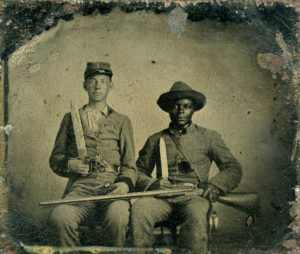
Debunking the Myth of the Lost Cause: a Lie Embedded in American History
I first read about the “lost cause” theory of the Civil War many years ago. Maybe 20. It’s the argument that the war was not about slavery per se, but about states’ rights, which is constitutionally guaranteed.
I have always been attracted to contrarian ideas. And the decentralization of power has always made sense to me. So, without knowing anything about it, I was predisposed to the lost cause idea. Normally, when I run into contrarian ideas that rub against the grain, I adopt them unthinkingly. But in this case, the subject matter – slavery – was too serious, even for me, to deal with cavalierly. So I spent a few months reading (well, skimming) every book and essay I could find on the subject. And I found very little to support it. I did, though, find loads of evidence that the Civil War was, as I was taught, fundamentally about slavery.
Here’s a little video clip from TED Talks that makes that point succinctly and pins the lost cause theory chiefly on Southern women. Click here.



